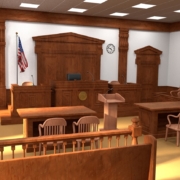How to Prove Negligence in a Personal Injury Case

Personal injury cases are built on the concept of negligence, which occurs when a person’s careless or reckless actions cause harm to another individual. To successfully prove negligence in a personal injury case in Alabama, several key elements need to be established. If you find yourself in such a situation, seeking the assistance of a skilled personal injury attorney can help you obtain the compensation you deserve to move forward with your life.
Key Elements to Prove Negligence in an Alabama Personal Injury Claim
-
Duty of Care:
The first step in proving negligence is establishing the existence of a duty of care. This refers to the legal obligation a person has to act reasonably and responsibly in order to prevent foreseeable harm to others. In Alabama, a duty of care is a fundamental element in personal injury lawsuits.
-
Breach of Duty:
Once the duty of care is established, the next step is to demonstrate that the defendant breached this duty. This means showing that their actions (or lack thereof) deviated from what a reasonable person would have done under similar circumstances. This is a vital element as it indicates that the defendant’s behavior was careless or negligent.
-
Causation:
Causation is divided into two parts: actual causation and proximate causation. Actual causation, often referred to as “but for” causation, requires proving that the plaintiff’s injuries would not have occurred “but for” the defendant’s breach of duty. Proximate causation involves showing that the injuries sustained were a foreseeable result of the defendant’s actions.
-
Damages:
In a personal injury lawsuit, damages refer to the physical, emotional, and financial harm suffered by the plaintiff as a result of the defendant’s negligence. These damages can include medical bills, pain and suffering, lost wages, and property damage. To proceed with a personal injury claim, the plaintiff should have suffered actual damages.
Steps to Prove Negligence in a Personal Injury Claim
These are a few steps your attorney will take to ensure a favorable outcome for your claim:
- Gathering Evidence: Collecting evidence is vital to proving negligence. This can include photographs of the accident scene, medical records, accident reports, witness statements, and expert testimonies. Evidence collected by your attorney will illustrate the defendant’s breach of duty and how it directly caused the plaintiff’s injuries.
- Establishing the Standard of Care: Determining the standard of care involves establishing what a reasonable person would have done in the defendant’s situation. Your attorney may use expert testimony to explain the expected behavior and how the defendant’s actions fell short.
- Demonstrating Causation: Proving both actual and proximate causation can be complex. It requires connecting the dots between the defendant’s breach of duty and your injuries. Medical records and expert opinions can be invaluable in illustrating this link.
- Calculating Damages: Documenting the extent of damages suffered is a necessary step. Medical bills, receipts, employment records, and testimonies from medical experts can help quantify the economic and non-economic damages.
Hiring an experienced personal injury attorney can help you find your way through the complex maze of Alabama tort laws. Your attorney will ensure you understand the legal process, help gather evidence, consult with accident reconstruction experts, negotiate with insurance companies, and take your case to trial if necessary.
How can an Attorney Help You Prove Negligence?
An attorney can be immensely helpful in proving negligence in a personal injury case:
- Legal Knowledge: They understand state negligence laws and court processes.
- Evidence Gathering: They know what evidence is necessary and can collect it effectively.
- Expert Witnesses: They can bring in experts to explain complex aspects of your case.
- Strategy Building: They create a strong case strategy to prove negligence.
- Insurance Negotiation: They negotiate with insurance companies for fair compensation.
- Court Representation: They present your case convincingly in court if needed.
- Paperwork: They handle the legal paperwork and filings.
- Objective Guidance: They provide an objective perspective amid emotional stress.
- Maximizing Compensation: They calculate and pursue full compensation for damages.
A personal injury attorney’s knowledge, skills, and resources significantly enhance the likelihood of successfully proving negligence and obtaining the compensation you are entitled to.
Contributory Negligence in Alabama
In legal terms, contributory negligence refers to a legal doctrine that can affect the results of a personal injury case. Alabama is one of the few states in the US that follows the doctrine of “pure contributory negligence.” Understanding this concept is important if you’re involved in a personal injury case in Alabama.
Under this harsh doctrine of pure contributory negligence, if the injured party (plaintiff) is found to have contributed in any way to the accident or their injuries, even if it’s a small percentage of fault, they may be completely barred from recovering any compensation from other parties who may have been predominantly at fault.
Unlike states that follow comparative negligence, where the injured party’s recovery is reduced by their percentage of fault, Alabama doesn’t allow recovery at all if the injured party is even minimally at fault. Given the strictness of Alabama’s pure contributory negligence rule, having skilled legal representation is the best way to ensure your rights are protected.
Statute of Limitations for Personal Injury Claims in Alabama
In Alabama, the statute of limitations for personal injury claims is generally two years from the date of the injury or accident. This means that you have a two-year window from the date the injury occurred to file a lawsuit seeking compensation for your injuries and damages. If you fail to file within this time frame, you may lose your right to bring legal action.
It’s important to note that there are exceptions and variations to this general rule depending on the circumstances of the case. For instance, if the injury was not immediately discoverable or if the injured person is a minor, the statute of limitations might be extended.
Discuss a Winning Legal Strategy with our Attorneys to Maximize Damages
The experienced personal injury attorneys at Haygood, Cleveland, Pierce, Thompson & Short, LLP work hard to fiercely protect client rights. Our attorneys are committed to fighting tirelessly on your behalf, ensuring your voice is heard and your interests are protected. To schedule your free consultation with our lawyers, call us at (334) 821-3892 or fill out this online contact form.













Leave a Reply
Want to join the discussion?Feel free to contribute!